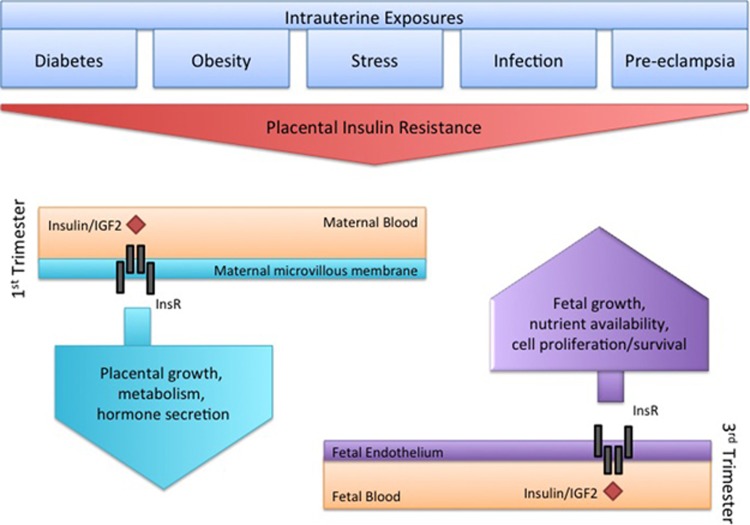Figure 2.
Insulin signaling as potential common programmatic placental pathway. A simplified schematic depicting the predicted impairment of insulin signaling within placentas complicated by diverse fetal exposures. In diabetes, obesity, and pre-eclampsia, changes in insulin receptor (InsR) localization, kinase activity, and substrate availability lead to placenta insulin resistance. Maternal stress and infection are predicted to also elicit insulin resistance, owing to the inhibitory effects of cytokines on insulin action. Predicted programmatic effects of placenta insulin resistance depend on exposure timing. In early pregnancy, InsRs are localized to maternal-facing trophoblasts and predominately regulate expression of genes related to metabolism of lipids and fatty acids. Such changes may have an impact on placental growth, trophoblast survival, and hormone secretion in early pregnancy. Later in gestation, their expression is restricted to the fetal endothelial cells where insulin communicates fetal demand for growth, cell proliferation, and cell survival.

